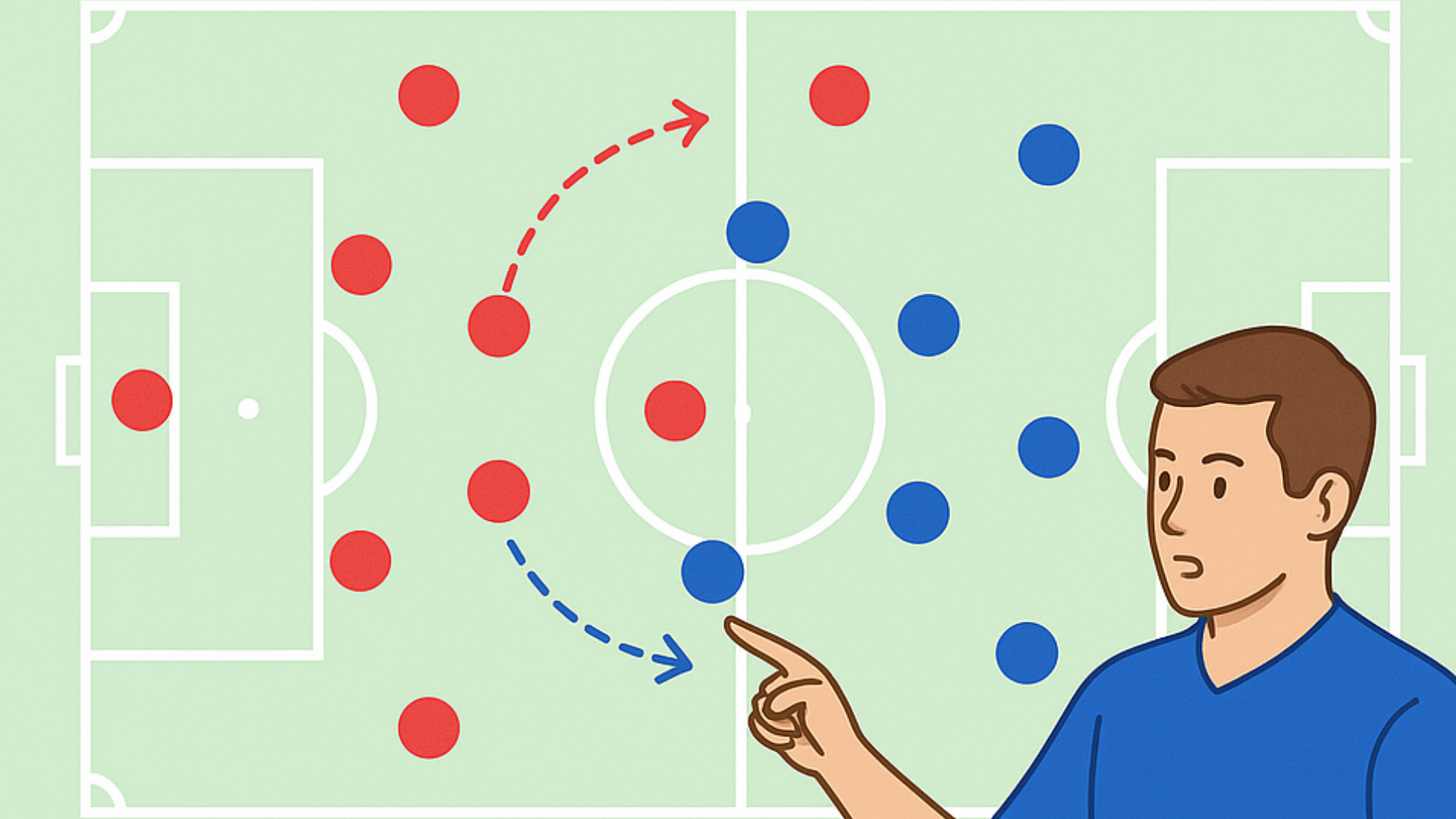In modern football, where decision speed defines success or failure, the ability of players to read the opponent’s game in real time becomes a crucial tactical weapon. It's no longer enough for a team to follow a predetermined plan — they must observe, understand, and adapt to what the opponent is doing.
1. Develop tactical intelligence
It all starts off the pitch. A tactically intelligent team is one that thinks football.
-
Active video analysis: Instead of telling them what to see, challenge them to spot key aspects:
-
“How does the opponent build their attack?”
-
“Where do the spaces appear?”
-
“Which players are key in transition?”
-
-
Interactive tactical discussions: Present game scenarios and ask them for solutions. Create analysis contexts where players take on the role of the coach.
2. Use perception and reaction training drills
Instead of mechanical routines, create game-like situations that force players to observe and adapt:
-
Hidden rule games: The opposing team follows a secret rule (e.g., presses only on the flanks), and players must identify it during the game.
-
Unexpected formation changes: The opponent switches from 4-3-3 to 3-5-2 mid-exercise. Your team must spot it and adjust positioning.
3. Promote critical thinking and on-field communication
Reading the game is not just an individual skill — it's a collective ability.
-
Encourage communication: Defenders warn about quick attacks; midfielders alert teammates when the pressing line shifts.
-
Pause the play and ask questions:
-
“What did you notice about their winger?”
-
“Where are the exploitable spaces?”
-
4. Design dynamic training sessions with tactical variability
In real matches, opponents constantly adapt. Prepare your team for this.
-
Simulate different opponent behaviors: Some press high, others sit back, some play long balls or short passing.
-
Introduce “tactical chess games” — drills where a single adjustment alters the entire dynamic (e.g., an opponent deliberately blocking the pass to the goalkeeper).
5. Offer immediate feedback and encourage reflective habits
After every match or training session, debrief with the team:
-
“What did you learn about the opponent?”
-
“When did you realize they were directing the press?”
-
“How did you respond?”
Encourage players to keep a game journal where they note what they observed and how they reacted.
✅ Conclusion
A team that knows how to read the game doesn’t just execute. It understands, decides, and adapts.
This is no longer about tactical instructions from the coach — it's about collective football intelligence in motion.
📚 Looking for more tactical insights, training drills, and coaching guides? Visit: www.enjoycoach.eu


